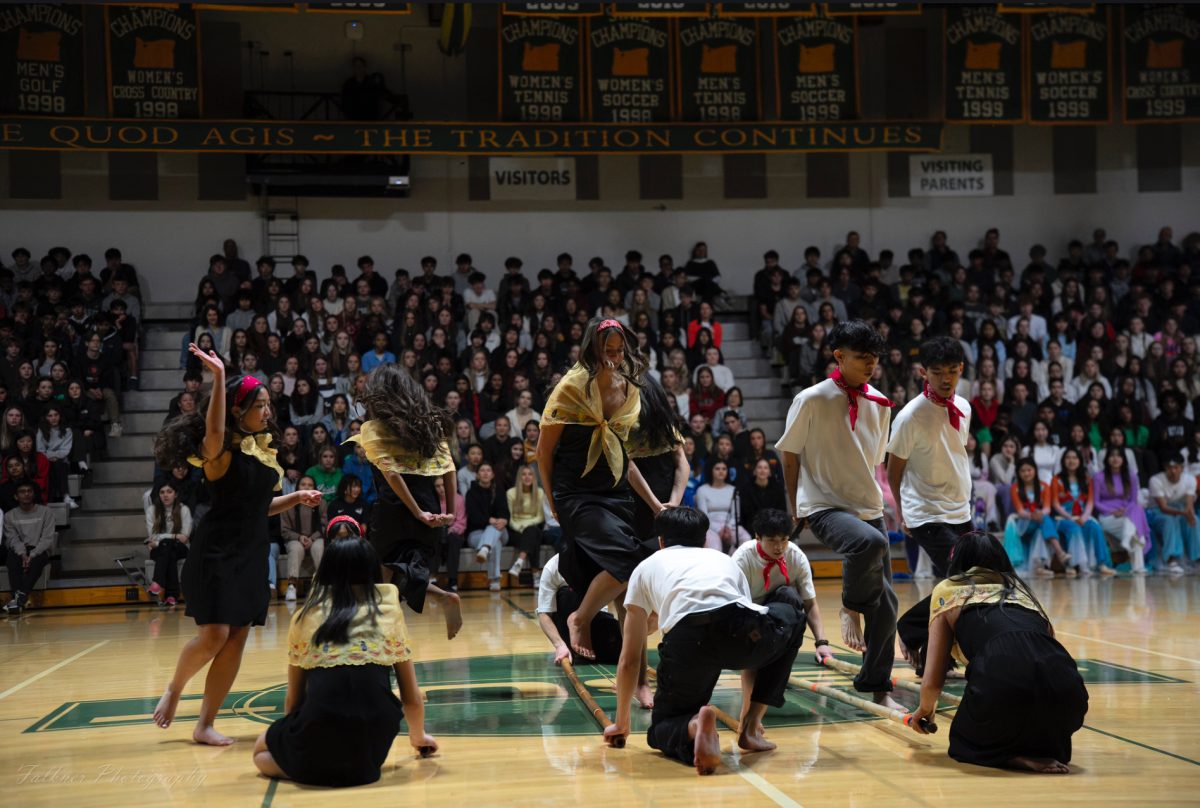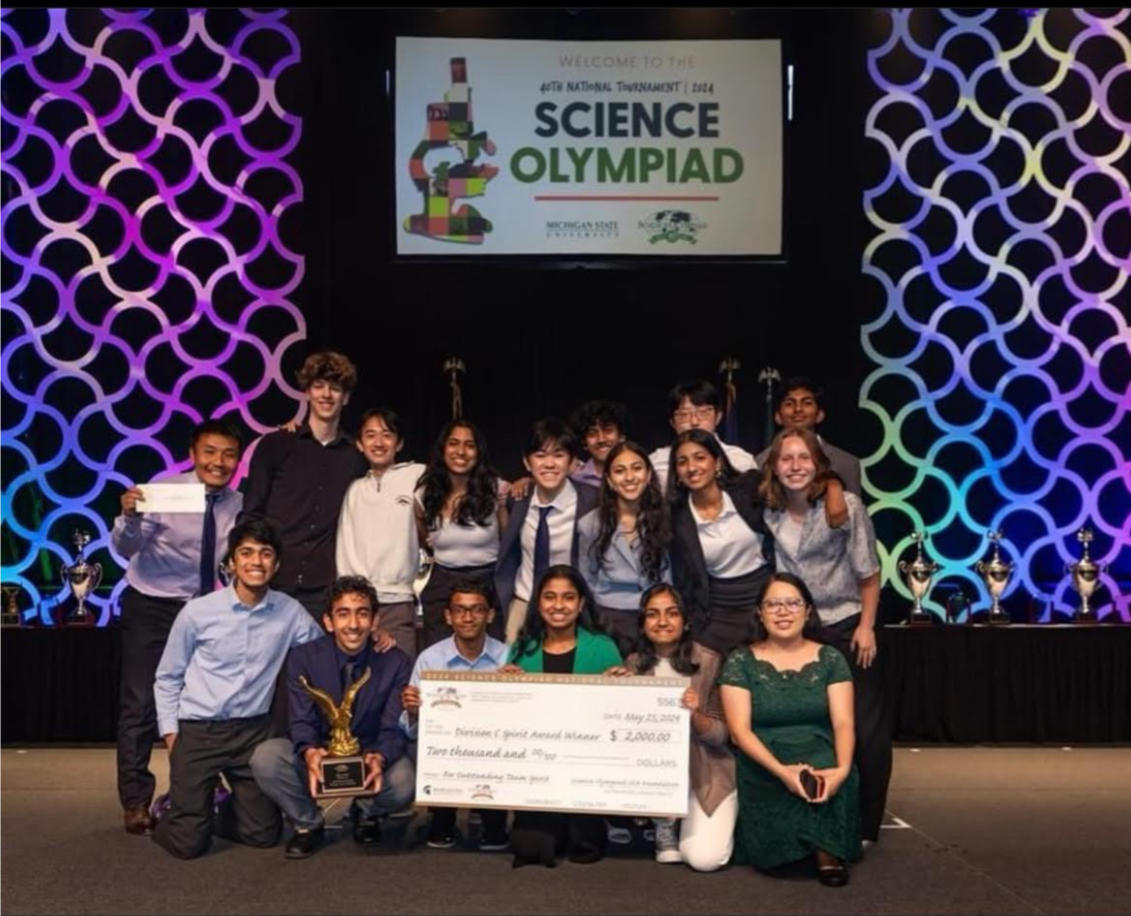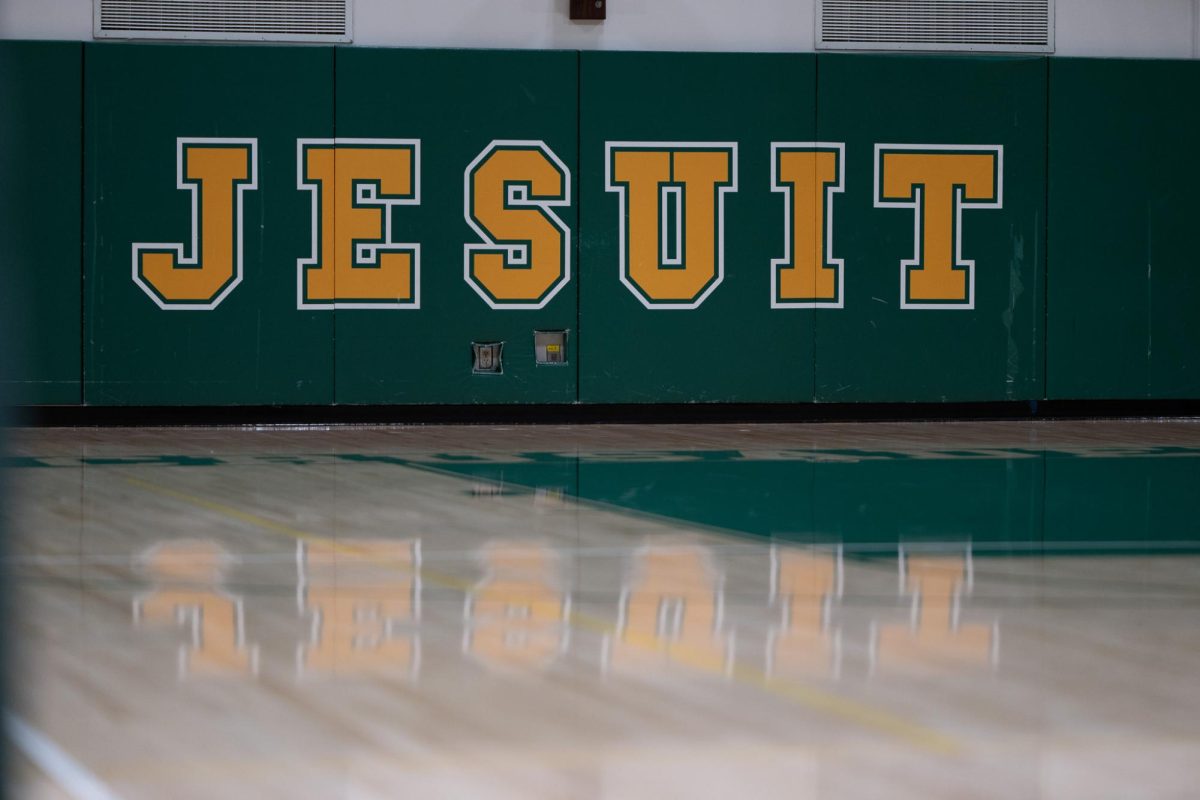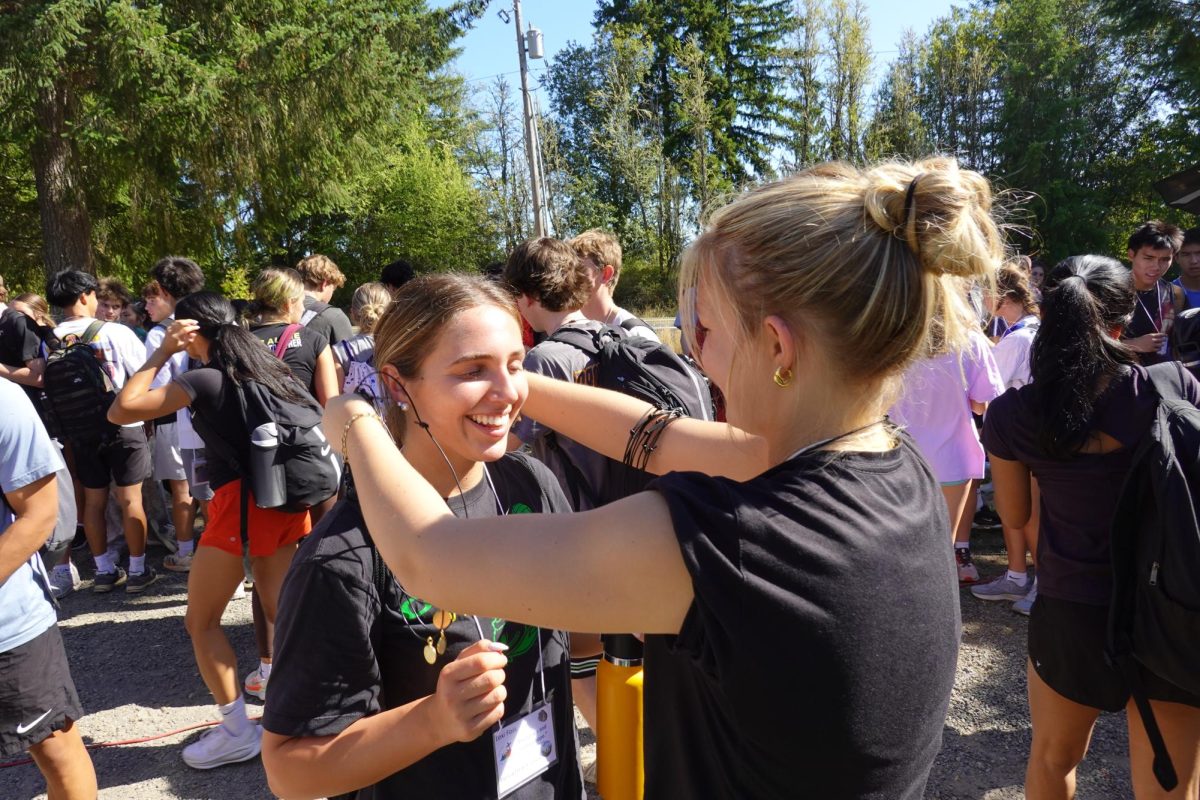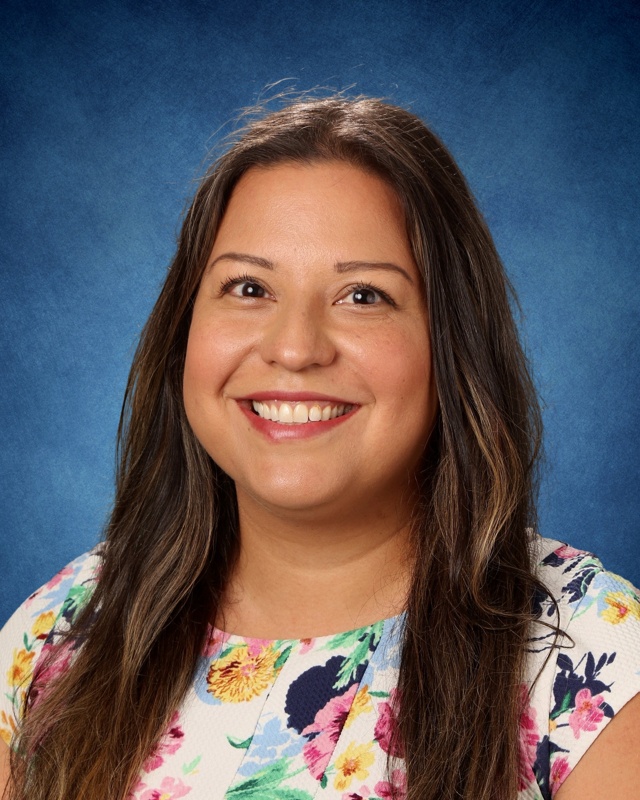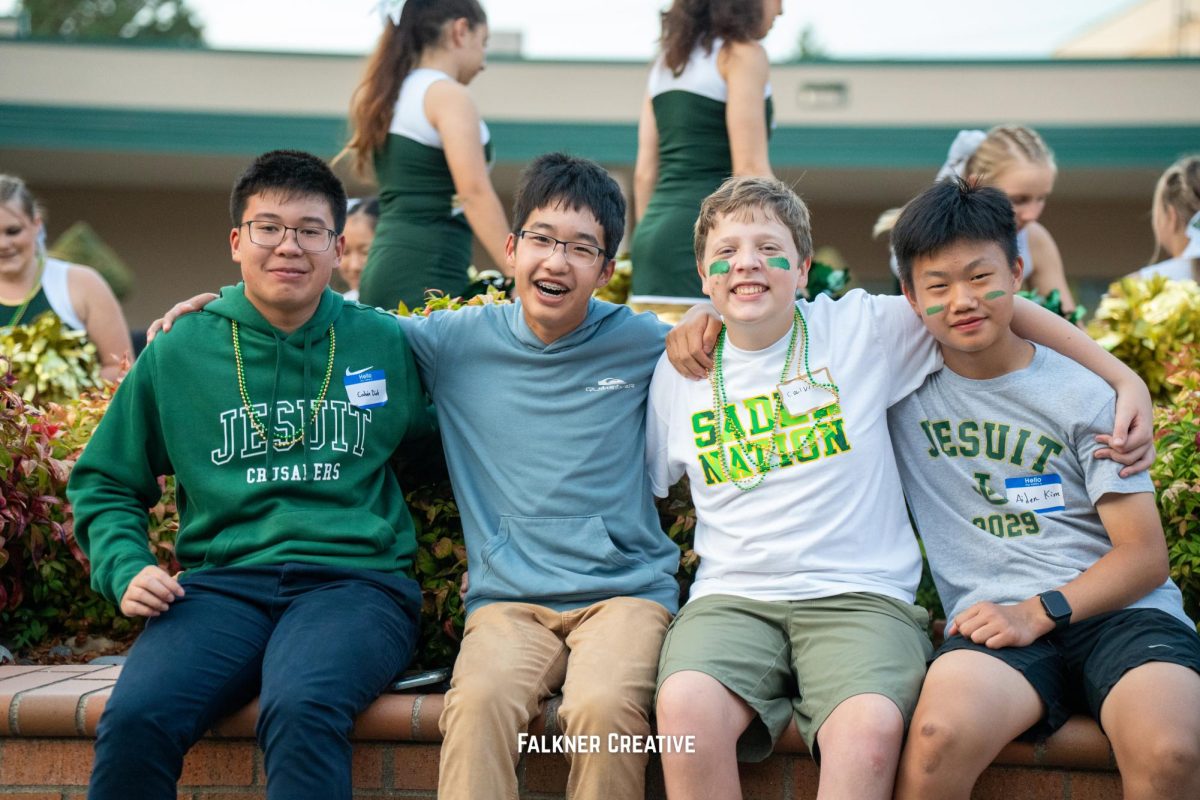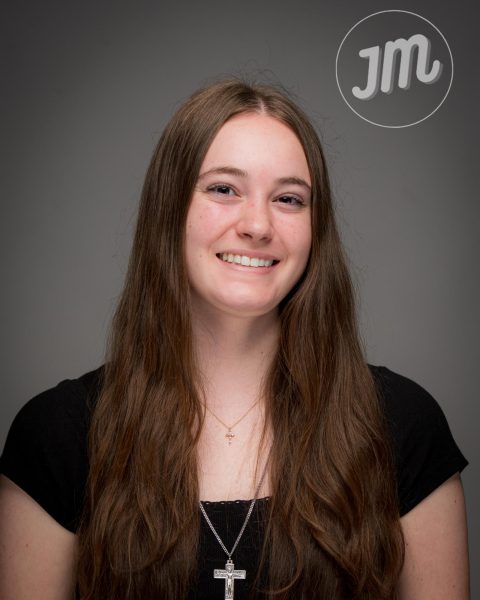In our ongoing series about the impact of AI at Jesuit High School, Jesuit Media writers are focusing on the many ways it affects a Jesuit education.
Sophomore class president and workshop leader Nathan Bui argues that Artificial Intelligence hinders creativity, and uses the past to create ideas that look new, but are only reused. This is what AI does with music, creating a problem: if music is solely created by AI, will new music ever be created?
At the workshop TuneTown: Where AI and Music Intersect, Nathan led an interesting introductory activity where the group had to guess whether a song he played was AI or real.
“I thought it was fascinating for me to listen to both the Drake AI and [original] song and the Michael Jackson AI and [original] song, how a majority of the class really could tell the difference. And it just shows that the models don’t take the place of our human intuition, the way we connect to music, the way that our hearts respond to music and, and I think it’s interesting to see how this will develop,” Ms. Caldwell said.
Freshman workshop leader Aditi Atreya discussed how this topic is not one that only these workshop leaders are curious about. Trevor Bushnell is a senior at Gonzaga University that the leaders zoomed with to learn more about this topic. He used AI to reharmonize Bach and played the AI renditions to a crowd. The crowd recognized the original from the AI, proving that the AI rendition is nowhere near the original piece and how we need to respect musicians and the talent they have.
Leader Shriya Marla, a sophomore, brought ethics into the discussion, asking the group to question whether we can call AI generated music our own. The students had various responses, some saying they can call the music their own because they wrote the prompt that generated the music, others disagreeing because AI put words together to generate lyrics and meshed notes to construct harmonies.
A study the leaders researched told them how 20-30% of today’s top songs used AI to generate lyrics.
“AI has a lot of power in music and power in arts. We have to reckon with that,” sophomore Zach Contreras said.
Leader Sohan Govindaraju, a sophomore, led the final group activity where the students generated their own AI music using the website beatoven.ai. As the students messed around, Sohan guided them into the understanding that, although AI can create music, it’s rather simple and repetitive.
The leaders were glad to have the opportunity to teach their peers about the connection between music and AI, as it’s not talked about often.
“I think the most important part [of the session] is the fact that we were able to show how music and AI there’s a connection between the two. And we’re able to do that through various activities, whether through the app that we did or through the background activity. It’s just really useful to just know in general, especially for musicians and people who attended a session,” Sohan said.
The other leaders agreed.
“I think AI is really important and I think that because the Jesuit community is so invested in music… so involved… and I think we, just in general, I think the community just has a love for music because of our age, our situation. And so I think delving into the intersection between both AI and music is a really important topic to talk about,” Shriya said.




